Similar presentations:
Oxford University Press – publisher supporting libraries and research communities
1.
Oxford University Press – publisher supportinglibraries and research communities
Marcin Dembowski– marcin.dembowski@oup.com
November 2017
Kazan
2. The University of Oxford
OverviewThe oldest university in the English speaking world.
It is a collegiate research based institution.
3.
Oxford UniversityPress
4. Our Mission
Oxford University Press is a department of the University ofOxford. It furthers the University's objective of excellence
in research, scholarship, and education by publishing
worldwide.
John Fell
4
Clarendon Presentation—Tim Barton (November 2011)
5. A Very Short Introduction
• Origins date back to 1478• Largest university press
• 25th largest publisher in the world
• 6,000 employees worldwide
• Over 5,000 titles per year, and 300 journals
6.
Oxford UniversityPress
Products
7. Support to Students Researchers and Academics
OUP in HumanitiesScholarly Resources
OHO, UPSO, Journals,
Research Encyclopaedias
Reference Materials
ODO, OBO, ORO
Framing the question for exploration &
reflection
Build argument & Support with evidence
Oxford Index
Generating related OUP content to deepen your
search
8.
Where do OUP Resources Fit in yourResearch Journey?
Subject
Specific
Resources
9. The User Journey
Reference, biography, and dictionariesVery Short Introductions
From quickly checking a fact or definition to
researching a term, concept, or person in-depth, with
articles and essays
Discover an intelligent and serious introduction to a
topic or subject, written by experts in the field that
make often challenging topics highly readable
Academic monographs
All connected by the
Oxford Index
One search brings together top
quality content and unlocks
connections in a way not
previously possible.
Research-level scholarship providing a
written study of a single specialized subject,
or an aspect of it
Academic
monographs
Research-level
scholarship
providing a written
study of a single
specialized subject,
or an aspect of it
Handbooks
Read in-depth, high-level articles by
scholars at the top of their field, with each
handbook creating an original conception of
the field and setting the agenda for new
research
10.
11.
Online Dictionaries12.
Oxford JournalsSupporting Researchers and Research Communities
13.
Oxford University Press (OUP) publishes the highestquality journals and delivers this research to the widest
possible audience. We achieve this by working closely
with our society partners, authors, and subscribers in
order to provide them with publishing services that
support their research needs.
14.
To view the available journals, pleaseaccess the Journals ‘A to Z’ list or view the
titles from the ‘Journals by Subject’ tab.
15.
Oxford University Press (OUP) ismission-driven to facilitate the widest
possible dissemination of high-quality
research. We embrace both green and
gold open access (OA) publishing to
support this mission.
To view the fully Open Access journals
list, please click on the ‘Open access’ tab.
16.
17.
18.
prefrontal cortexTo search the platform, please type
your query into the search box.
19.
Oxford Academic Platform: JournalsNew and Improved Functionalities
The new platform offers the following new functionalities:
1- Altmetrics figures displaying at the article level: quantifying and displaying
usage, citation and sharing.
2- The ability to refine and filter search results by article type, subject, journal,
section, date, and availability.
3- The ability to search by images
4- The format of the PDF and PowerPoint slides
The improved features are:
1. Search, discovery, and navigation
2. Connections between content types
3. Subscription, purchase, and updating
4. My Account: Oxford Academic Account
5. Responsive design
6. Improved user experience (UX)
20. Medicine Collection 2017
Free content20
21.
The Medicine Collection – 104 journals• Oncology, cardiology, neurology, epidemiology,
reproductive medicine, rheumatology, anesthesia,
gerontology, & public health
22.
23.
24.
25. Oxford’s Specialised Platforms
• Oxford Medicine Online25
26. What is Oxford Medicine Online?
The go-to website for full-text access to
hundreds of high-quality, trusted Oxford
University Press medical texts
An essential, one-stop resource providing
quick access to authoritative information
across a wide range of specialty and subspecialty areas
Supports every stage in a medical career: a
must-have for medical students, junior
doctors, nurses, midwives, senior doctors
and consultants
27. Features and benefits
Over 900 cross-searchable titles
Exclusive online only content – videos,
downloadable images, and self-testing
functionality
New titles added each month
Oxford Textbook of Medicine title is
updated four times a year
A variety of browsing options: Specialty,
Career Stage, or Series
Chapters can be downloaded to PDF
format
‘Quick search’ and ‘Refine search’ options
available
Online tutorials and quick user guides
28. Features and benefits
COUNTER-compliant usage statistics at
subject and book level
DOIs to allow direct referencing in reading
lists
MARC records available free of charge
Open URL compliance, connecting citations
to your library’s catalogue
Superior customer support, providing
subscribers and users with timely responses
and assistance
Email alerts and RSS feeds deliver title lists
and the latest news from Oxford Medicine
Online straight to your desktop
Free trials available to institutions world-wide
29.
Значки вверху позволяют распечатыватьконтент, сохранять его в персональном
разделе, экспортировать цитаты в
соответствующие программы, посылать
ссылки на статьи по почте и размещать их
в социальных сетях.
Обратите внимание, что
главы можно скачивать в
PDF-формате.
30.
Дополнительная литература внижней части главы позволит
расширить исследования.
31.
Вы можете такжекомментировать текст, а
также увеличивать и
загружать изображения в
Power Point для лекций и
презентаций.
32.
33.
34.
35.
Oxford e-Learning являетсявспомогательным ресурсом с
вопросами и ответами для
изданий из Oxford Medicine
Online
36.
Inside OEL37.
Каждая тема в OxfordBibliographies объединяет
обширную коллекцию статей,
касающихся разделов той или
иной дисциплины.
Oxford Bibliographies
разработан совместно с
учёными и библиотекарями из
разных стран и содержит
эксклюзивные, авторитетные
пособия для исследований.
В результате получился
невероятно мощный новый
ресурс, разработанный, чтобы
послужить исследователям
путеводной нитью в ситуации
информационной перегрузки.
38.
Каждая статья в Oxford Bibliographies снабженапрямыми рекомендациями и контекстной
информацией, чтобы пользователи могли найти в
точности те ресурсы, которые им нужны.
39.
Каждая статья, написанная и отрецензированнаяведущими учёными в своих областях, состоит из
вводного текста и комментариев с последующим
аннотированным списком ссылок на
процитированные работы:
40.
Значки OpenURL ведут на записьсоответствующего ресурса в вашем
библиотечном каталоге
Ссылки WorldCat приводят прямо на
запись соответствующего ресурса в
каталоге OCLC WorldCat.
Ссылки Google Books (где это
возможно) ведут прямо на этот ресурс
в Google Books.
41.
заголовки – определяюттипы ресурсов и основные
научные области
Экспертные комментарии
вводят в контекст и дают
рекомендации, ориентируя
пользователя среди цитат
Ссылки на
ресурсы,
доступные в
вашем
библиотечном
каталоге, OCLC
WorldCat,
Google Books и
т.д.
Цитаты снабжены
выборочным списком
лучших и наиболее
полезных ресурсов
Аннотации показывают, что
включено в работу, и дают
указания о том, как ресурс
может способствовать поиску
42.
How to get published withinternational journals?
43. Before you start………….
You must have a clear topicor topics to be reviewed,
what is your research
question?
44. Ideas where to start
As well as ‘traditional’ research…
Are you working on a Doctoral or Master’s thesis?
Have you completed a project which concluded successfully?
Are you wrestling with a problem with no clear solution?
Do you have an opinion or observation on a subject?
Have you given a presentation or conference paper?
If so, you have the basis for a publishable paper
45.
Editors are looking for “something new andpreferably surprising” according to Dr. Peter
Smith, a Cambridge philosopher and former
editor of Analysis, the philosophical journal.
46. Be Careful:
There are 1,000,000’s of published studies.You need to MASTER your topic: be aware
of works completed by others, updates
or/and be ready to answer questions or
summarize it.
47. References:
48. Oxford Bibliographies Online
OBO is a library of discipline-focused, online guidesto the essential literature across a broad range of
subject areas.
Each OBO article, written and reviewed by top
scholars in the field, is rich with citations and
annotations, expert recommendations, and
narrative pathways through the most useful and
important works on the topic in question.
Intuitive linking throughout quickly delivers the
user from a citation to full-text content, whether
online or available through a library’s catalog.
“We are drowning in
information, while
starving for wisdom. The
world henceforth will be
run by synthesizers,
people able to put
together the right
information at the right
time, think critically about
it, and make important
choices wisely.”
— E.O. WILSON
49.
Our Focus50.
Initial literature review: The 5 X 5principle
- Identify 5 top peer refereed academic journals focusing on
your specific subject
- Identify 5 top internationally recognized books or collective
works on your specific subject
- Identify 5 top academic research centres specializing in
your subject
- Identify 5 most renowned professors in your narrow field
(„gurus”)
- Identify 5 top regular international academic conferences
covering your subject
50
51. Think of a literature review as a jigsaw puzzle
52.
53.
54.
55.
Which journal to go for?56. Criteria You Might Look At:
• Rankings (example Thomson Reuters Impact factors; theAssociation of Business Schools ABS etc.)
• Number of downloads (utility)
• Dissemination of journal (where it is read)
• Links to societies/associations
• Relevance of content and publishing ethos
• International
57. Questions to Ask Yourself When Choosing:
• What are your most important factors when choosing ajournal?
• Which resources do you use to research the journals you
publish in?
• Which rankings do you use? How important are they?
• Who do you ask for advice?
• What is the best journal in your field? Why?
58. PROCESS!!!!!
59.
Surviving peer reviewNot always straight forward proccess
60. Research is all about peer review
1. You need to avoid adesk reject
2. You may need to
revise and resubmit
3. You will almost
certainly need to alter
your paper
61. The Process
• Submission is an important step on the road to beingpublished
• Reviewers are selected for their expertise by the Editors
• They do sometimes make mistakes and their opinions may not
be valid
• But generally they raise genuine concerns about the work –
conceptualization, execution and/or interpretation of the work
62. The Process
• Their comments are aimed at maintaining the quality of paperspublish in the journal, the overall journal reputation and
ultimately at improving your work to attain a high standard of
academic writing.
63. Process Conclusion:
• Identify a few possible target journals but be realistic• Follow the Author Guidelines: scope, type of paper, word length,
references style, etc.
• Find where to send your paper (editor, regional editor, subject
area editor) …
• … and how to send it (email, hard copy, online submission)
• Send an outline or abstract to editor: is it suitable? how can it be
made so?
• Read at least one issue of the journal
64.
www.oxfordjournals.org65.
66.
www.oxfordjournals.org67.
68.
69.
70.
71.
72. What makes a good paper? HINT: Editors and reviewers look for …
Originality – what’s new about subject, treatment or results?
Relevance to and extension of existing knowledge
Research methodology – are conclusions valid and objective?
Clarity, structure and quality of writing – does it communicate well?
Sound, logical progression of argument
So what?’ factors!
Recency and relevance of references
Adherence to the editorial scope and objectives of the journal
A good title, keywords and a well written abstract
73. Co-authorship?
With supervisor, different departments or institutions
Exploits individual strengths
Especially useful for cross-disciplinary research
Demonstrates the authority and rigour of the research
Increases potential pool of citations
But remember
• Ensure paper is edited so that it reads as one voice
• Identify the person responsible for closing the project
• Agree and clarify order of appearance of authors
74. Peer Review:
• Peer Review is important to assess your work before submittingit.
• Have fellow colleagues, tutors, scholars look at your work and
give you feedback to avoid desk rejection. You do not want to be
refused by appearing uninformed concerning your submission.
• Always expect that you would have to amend, alter and revise
your paper to submit a more accurate version.
75. Plagiarism and referencing
• Plagiarism (from the Latin plagium meaning ‘akidnapping’) is the act of taking someone else’s work and
pretending it is yours. It is considered fraud!
• It isn’t always detected in peer review but electronic tools
can help
76. Revising
• A request for revision is good news!– You’ve avoided a desk reject and you are in the publishing cycle
– Nearly every published paper is revised at least once
– So now, close the deal!
• Acknowledge the editor and set a revision deadline
• Clarify if in doubt – ‘This is what I understand your
comments to mean…’
• Meet the revision deadline
• Attach a covering letter showing how you met the
reviewers’ requests (or if not, why not)
77. Dealing with the comments:
• Answer as completely as possible• Answer politely, be tactful and not with emotive language
• Answer with evidence
• If you feel the reviewer has misunderstood then address the
point with a good argument explaining why the reviewer is
mistaken
• It may be the reviewers are conflicted on a point
• It is ok to use one reviewer to argue against another
78.
79. In case of rejection:
80.
81. If your article is rejected
• Ask why, and listen carefully!Most editors will give detailed comments about a rejected
paper. Take a deep breath, and listen to what is being said
• Try again!
Try to improve the paper, and re-submit elsewhere. Do your
homework and target your paper as closely as possible
• Don’t give up!
At least 50% of papers don’t get published. Everybody has
been rejected at least once
• Keep trying!
82. How to sell your work
• Use a short descriptive title containing main keyword –don’t mislead
• Write a clear and descriptive abstract containing the main
keywords and following any instructions as to content and
length
• Provide relevant and known keywords – not obscure new
jargon
• Make your references complete and correct – vital for
reference linking and citation indices
• All of this will make your paper more discoverable which
means more dissemination and possibly more citation
83.
84.
YOU DID IT!!!!!!!85.
OUPSUPPORTING
ACADEMIC RESEARCH
86.
87. Epigeum History and Background
• Epigeum is a spin out from Imperial College London• Epigeum is a spin out from Imperial
College London
• Developed pedagogy and innovative courseware
based on research from Imperial’s College’s
• Developed pedagogy and innovative
Business School teaching and learning unit
courseware based on research from
Imperial’s College’s Business School
• Epigeum became a wholly owned subsidiary and
teaching and learning unit
part of the Oxford University Press on 22nd May
2015
• Epigeum became a wholly owned
subsidiary and part of the Oxford
University Press on 22nd May 2015
88. The Story of Epigeum Course (2:13)
The Story of Epigeum Coursehttps://www.youtube.com/watch?v=SMknJeqLV90
(2:13)
89. Epigeum Introduction
Transforming Research, Teaching and Learning inHigher Education Through Exceptional Online Learning
90. Epigeum Online Courses
92Online Courses
Used By
280
29
Universities
Countries
36%
95%
Of the QS World Top
100 Universities
Of Russel Group
Universities
91. University Clients
92. Why Epigeum ?
Useful pods on the right side of each screen such as:Quotations- Portfolio activities – Documents - Advice - Key terms
Links to further reading – Add your context
93. Supporting materials
• Video is a key element of Epigeumcourses and is likely to include,
for example:
- Expert interviews
- Case study/practitioner interviews
- Explanatory video
94.
Our courses: Leadership and Management95.
Our courses: Studying96.
Our courses: Teaching97.
Our courses: Research98.
Our courses: Research99.
Our courses: Research100.
Research Skills Master ProgrammeIMPACT: evaluation tools
and analytics
1.
2.
3.
4.
Who are your trainees?
Did they learn anything?
Has program changed
climate?
How does your
institution measure up?
101.
Research Skills Master Programme18 online courses to select
102.
Getting published in science103.
Research methods in science104.
AMA Manual of StyleA Guide for Authors and editors
(руководство для авторов и редакторов)
Краткая история издания
Первое издание редакционного руководства для научных журналов AMA
появилось в октябре 1962; в нём было 68 страниц и предназначалось оно, в
первую очередь, для штатных сотрудников, и лишь во вторую для авторов.
Издание росло медленно, но уверенно: от 90 страниц во втором издании,
вышедшем в свет в 1963, до 154 страниц в шестом, изданном в 1976.
Восьмое издание дало начало сегодняшней «традиции» — комитету из 10
профессиональных редакторов из JAMA и Archives Journals, ответственных
за контент и получение внешних рецензий (peer review) по всем разделам.
В 10 издании, выпущенном Oxford University Press в 2007, руководство
продолжило наращивать объём, который составляет сейчас 1032 страниц.
105. M
AMA Manual of StyleM
106. What is the AMA Manual of Style?
A must-have guide for anyone
involved in medical or scientific
publishing
An essential, one-stop resource
providing quick access to
authoritative information.
Everything you need to
produce well-organized and
clear manuscripts
107. Linking from course packs and reading lists
To add a chapter to an online course pack or readinglist, COPY and PASTE the DOI to the end of the
standard URL prefix. Eg.
10.1093/jama/9780195176339.001.0001
Students who click on this URL will be taken
straight to this section
DOIs are unique and permanent so you don’t
need to worry about broken links
108. Any Questions…
Marcin Dembowskimarcin.dembowski@oup.com
108






















































































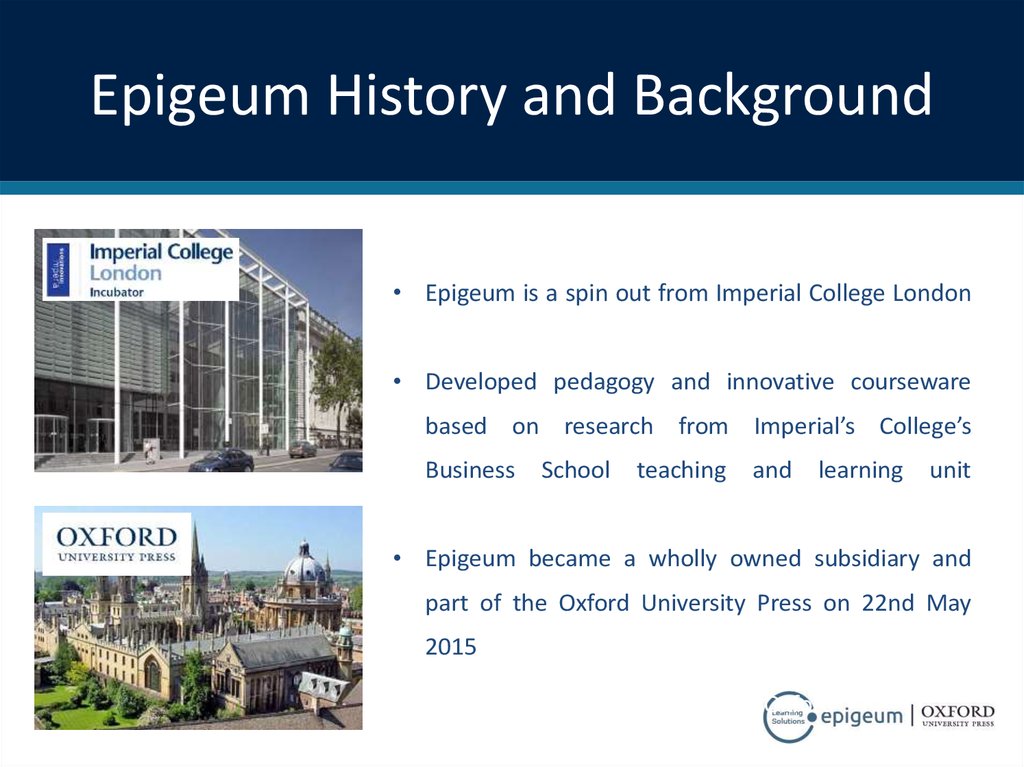

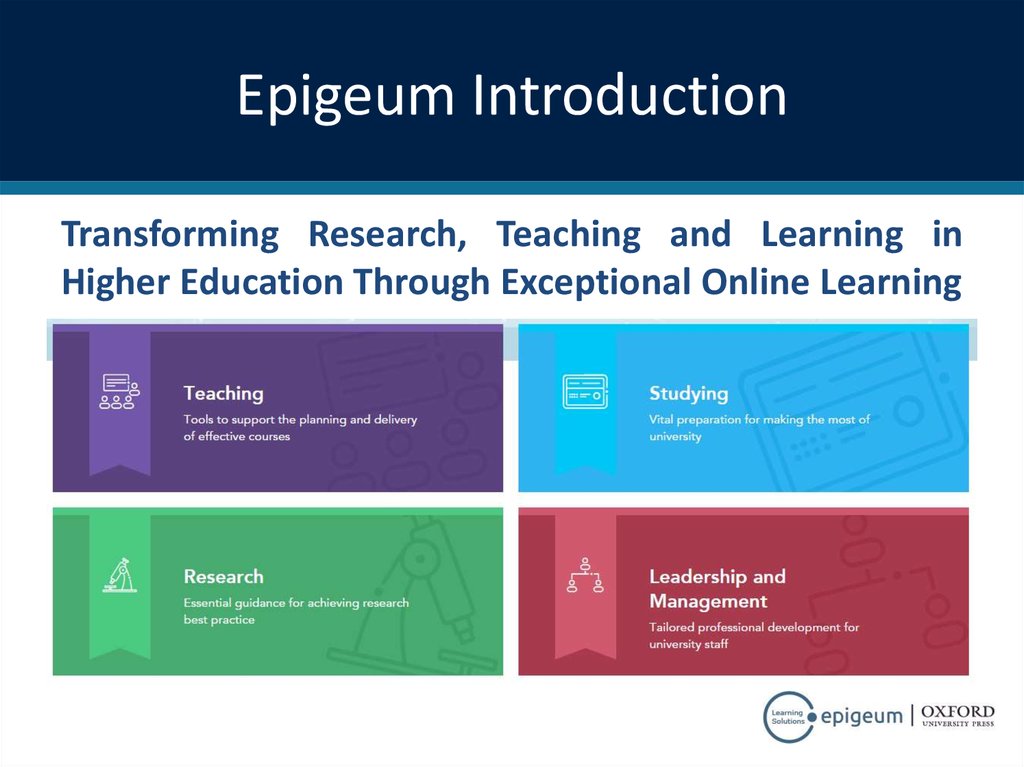
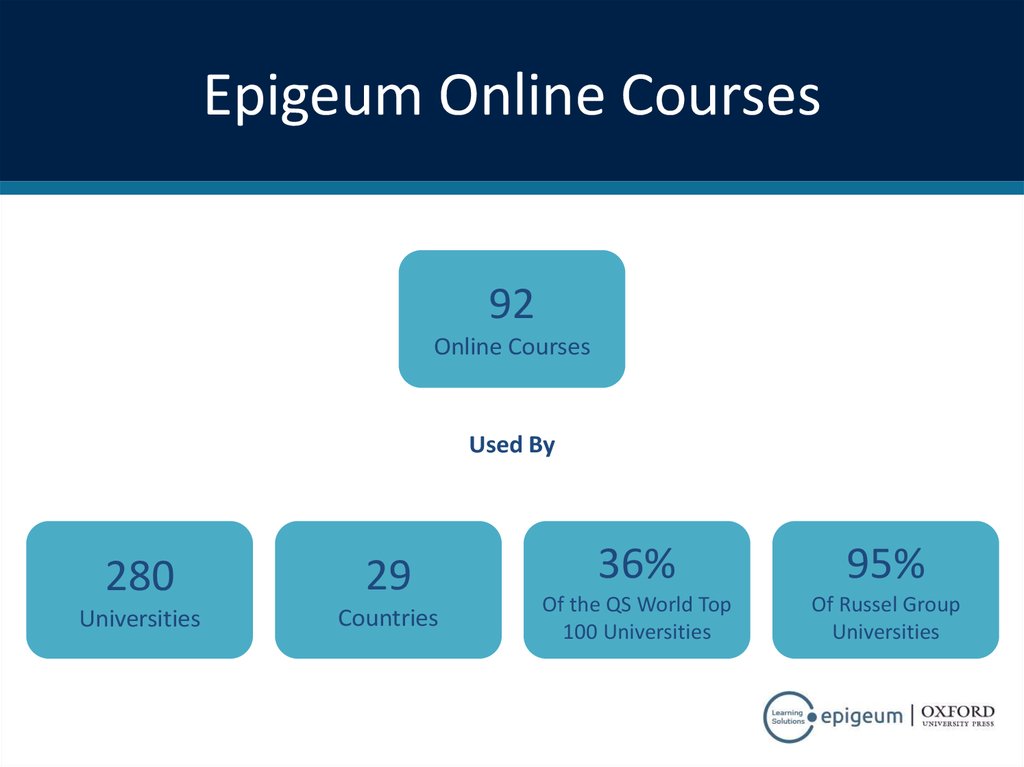
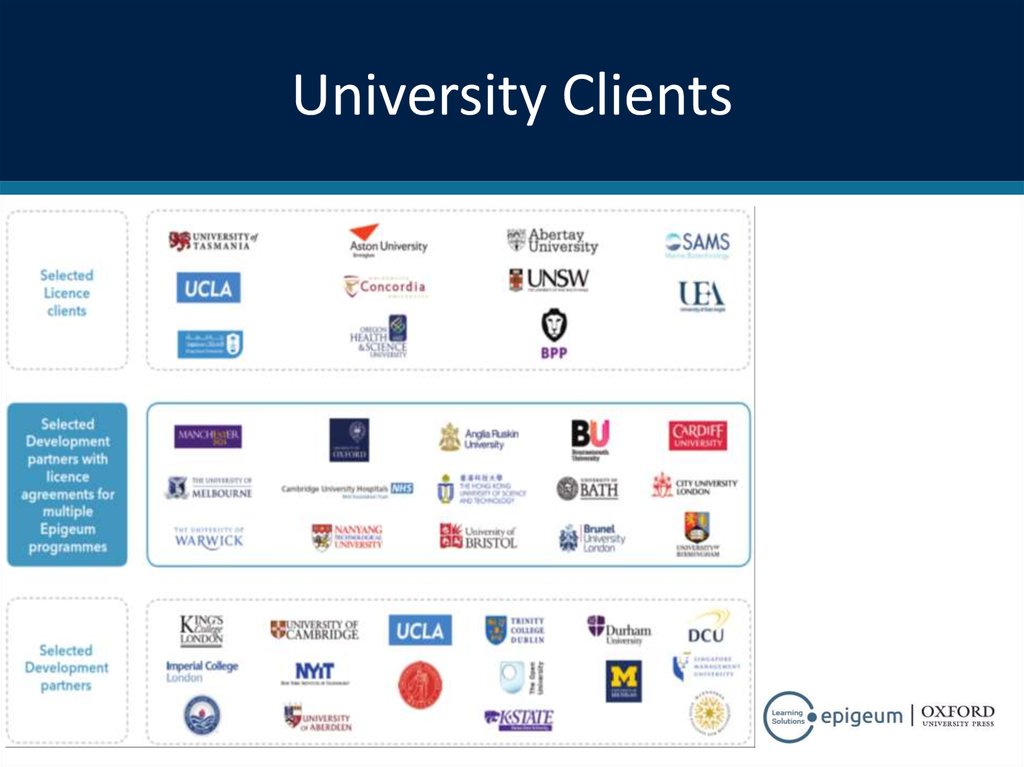

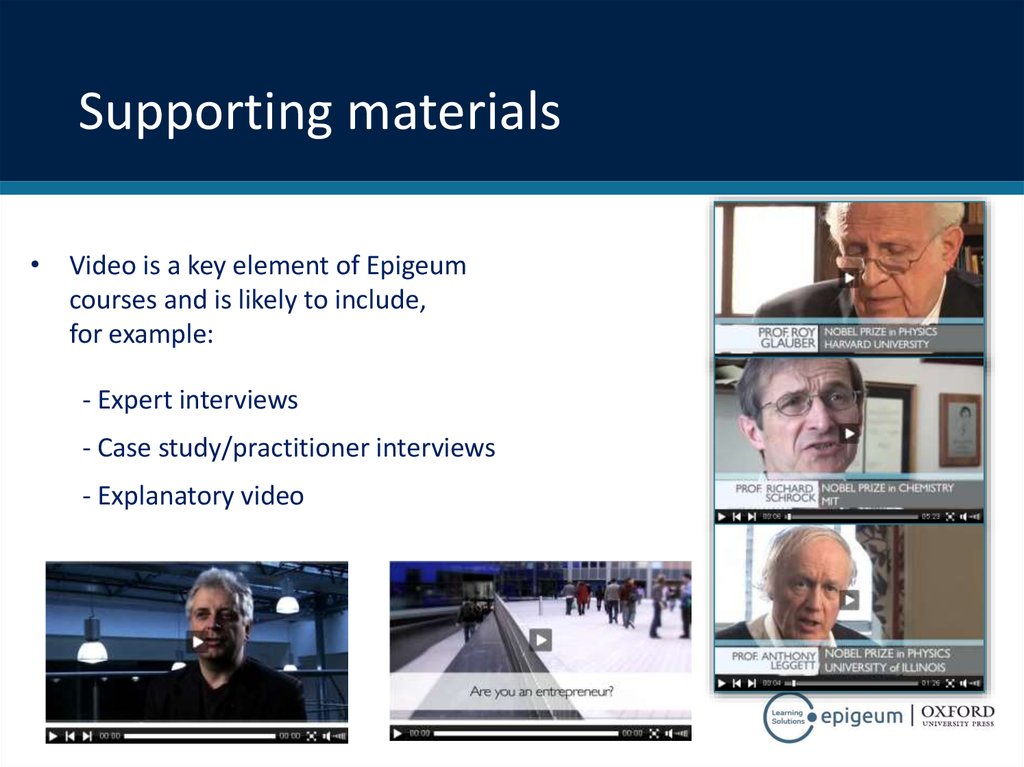
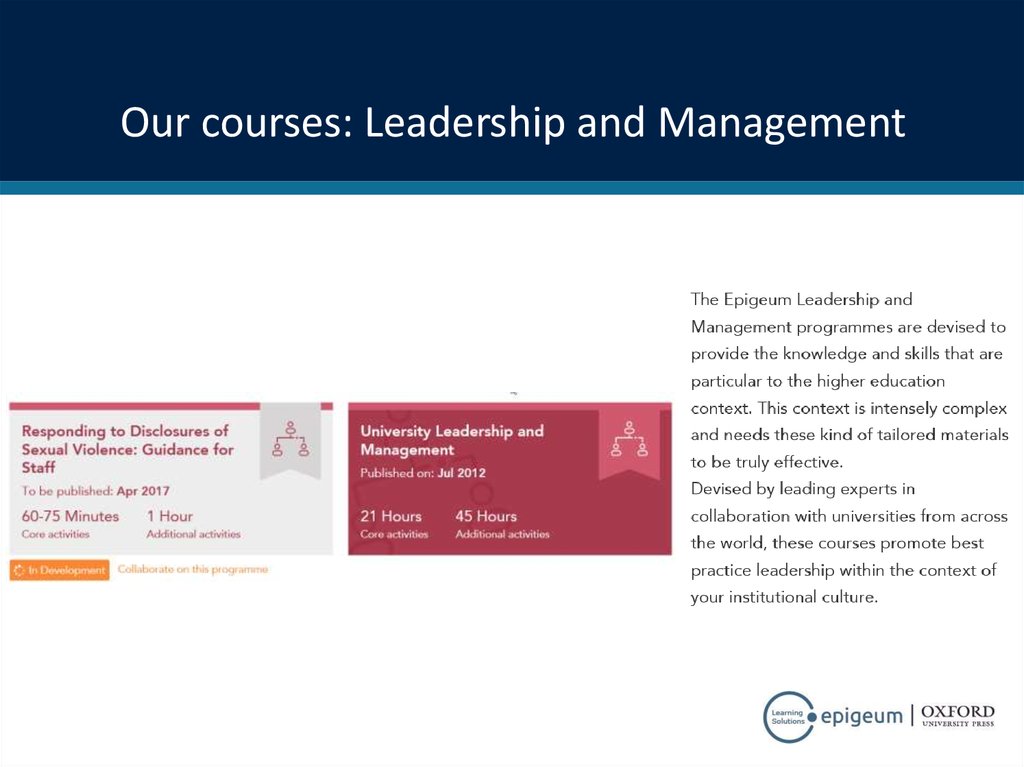
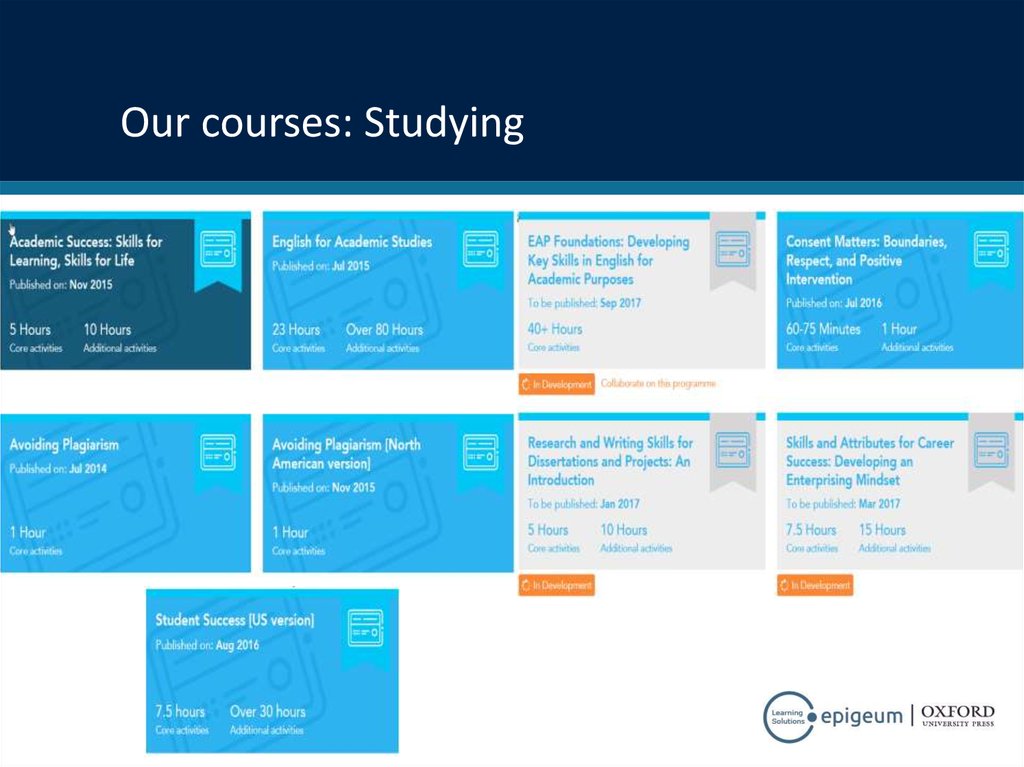

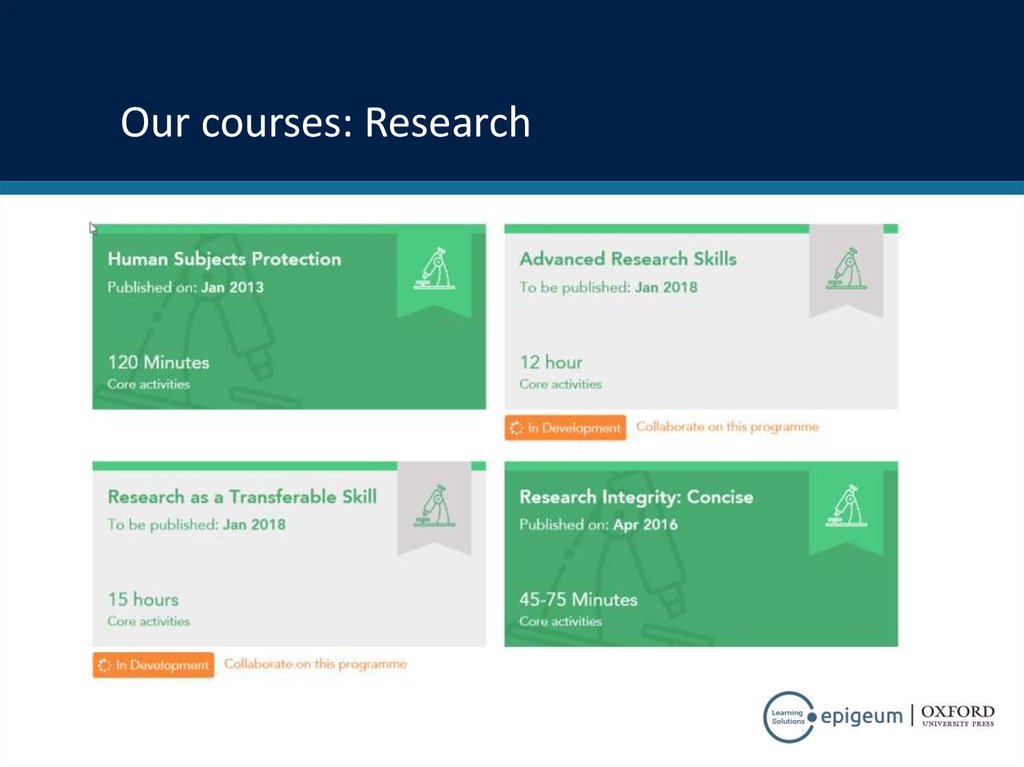
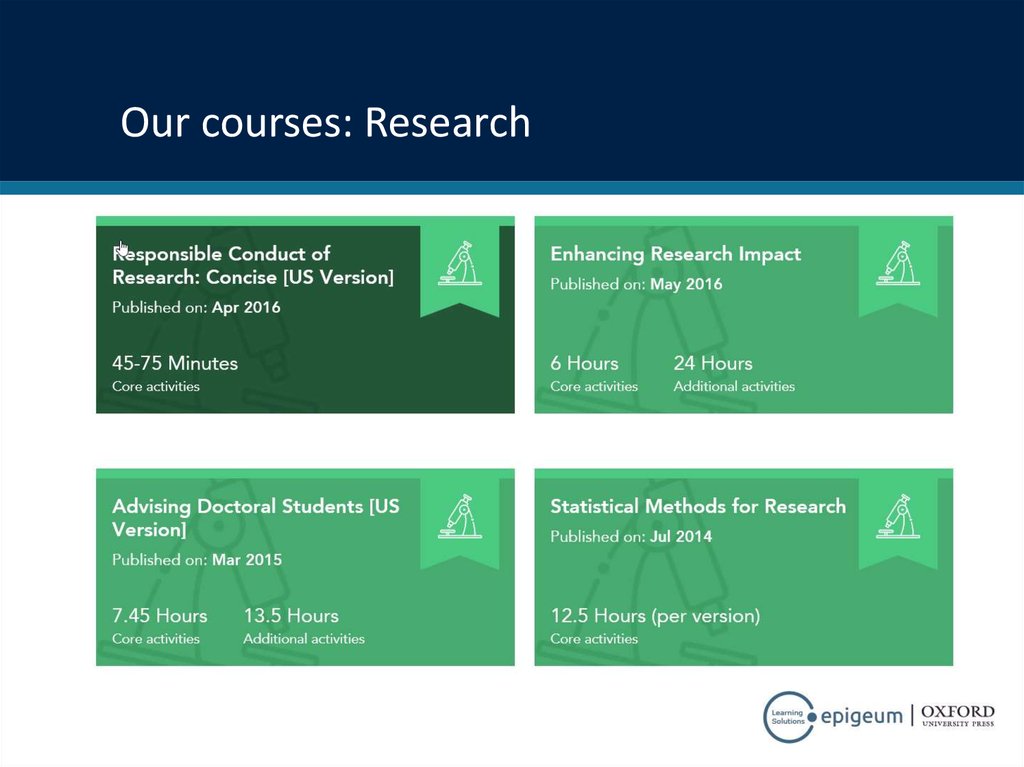

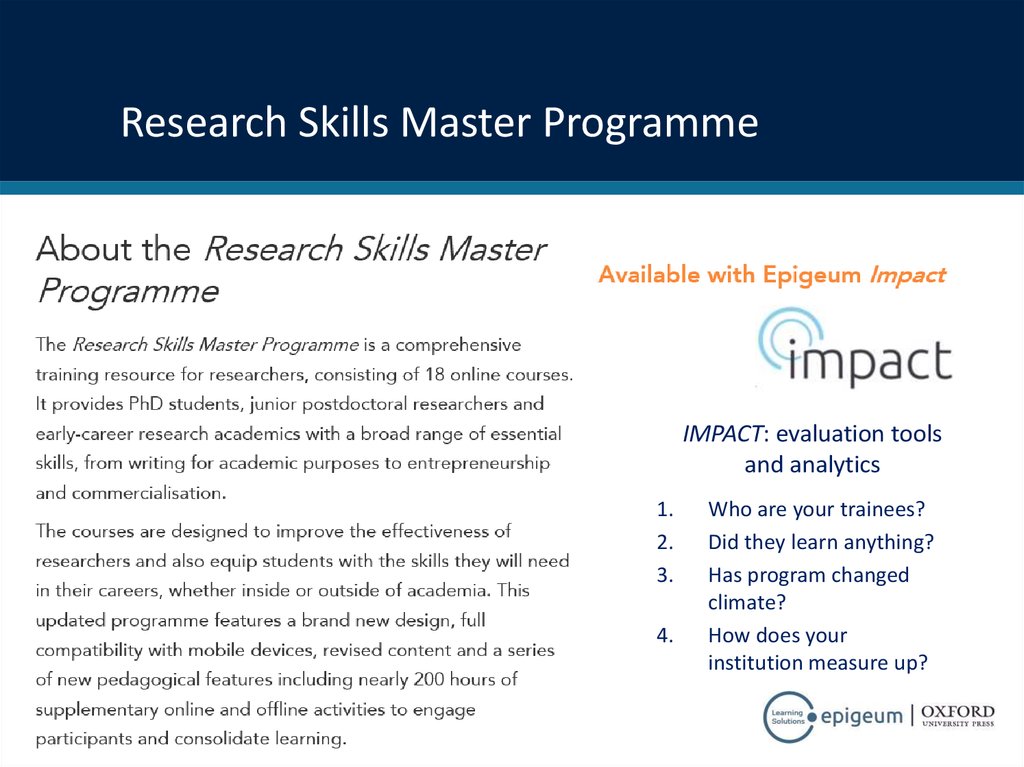
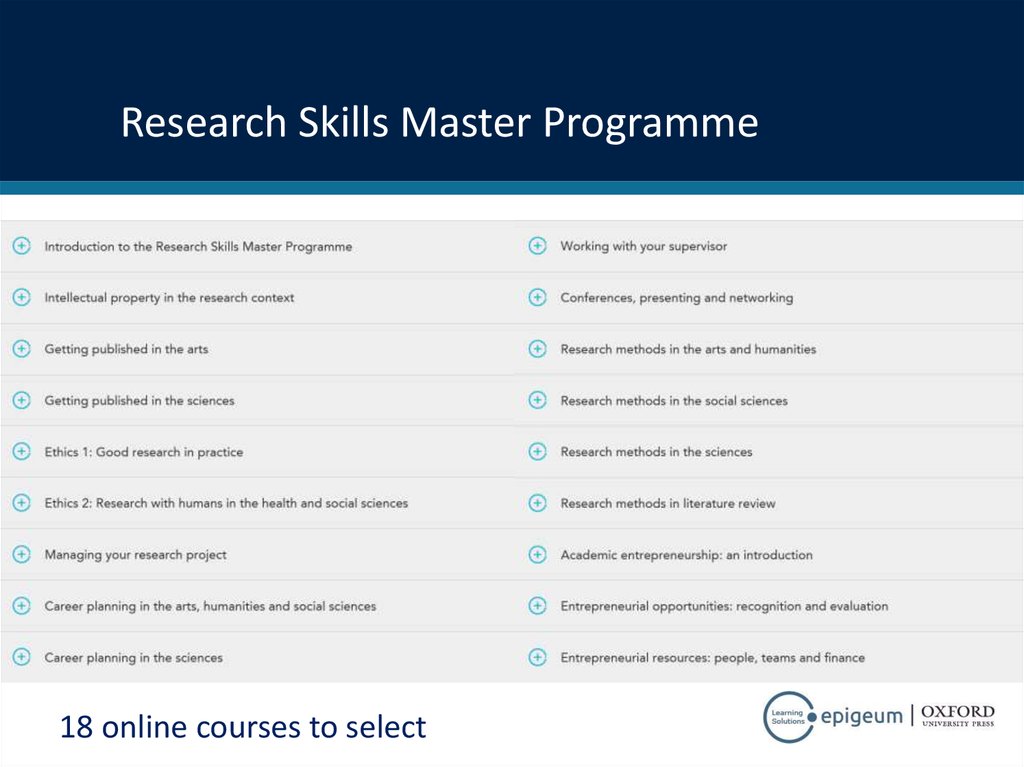
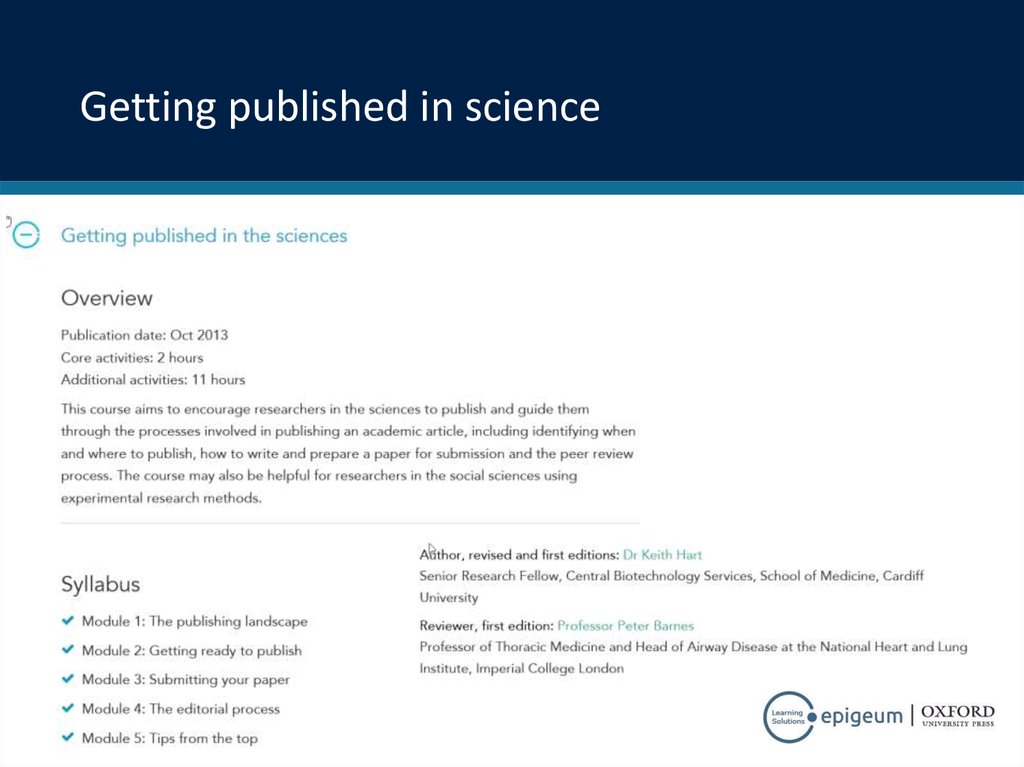


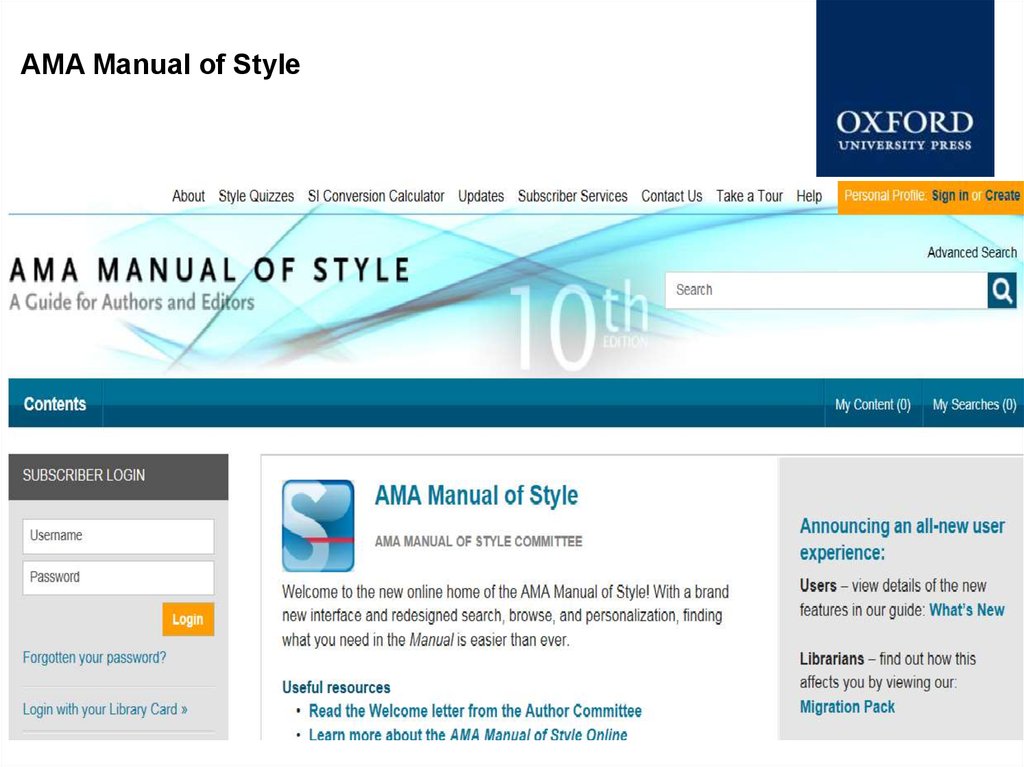
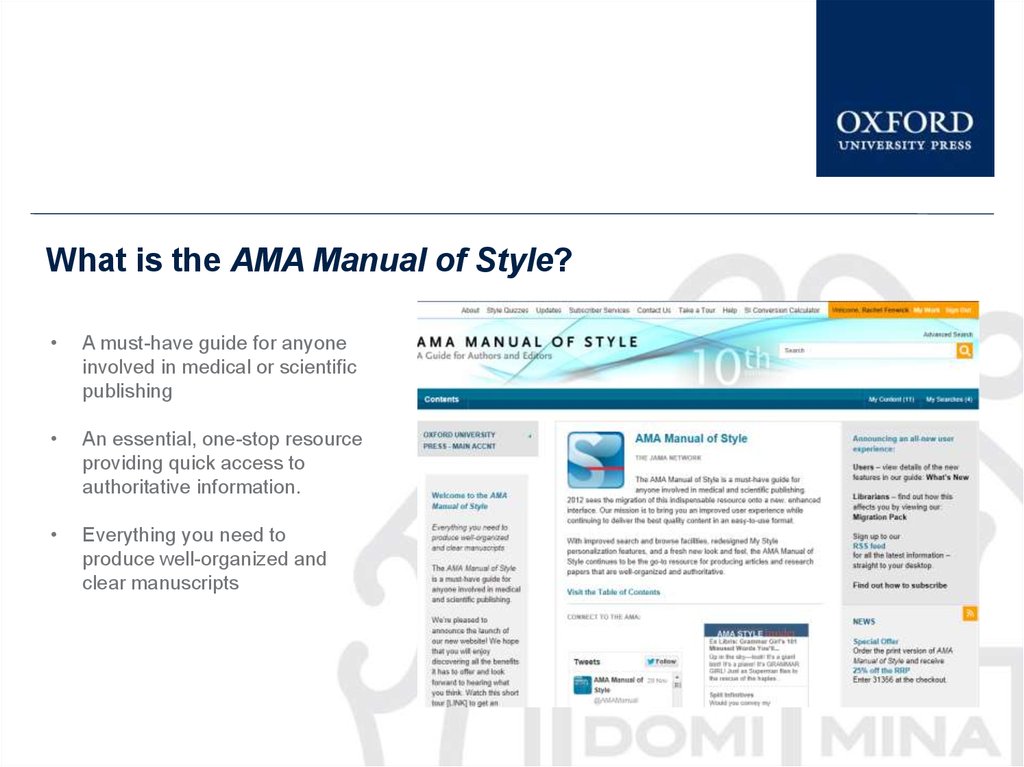
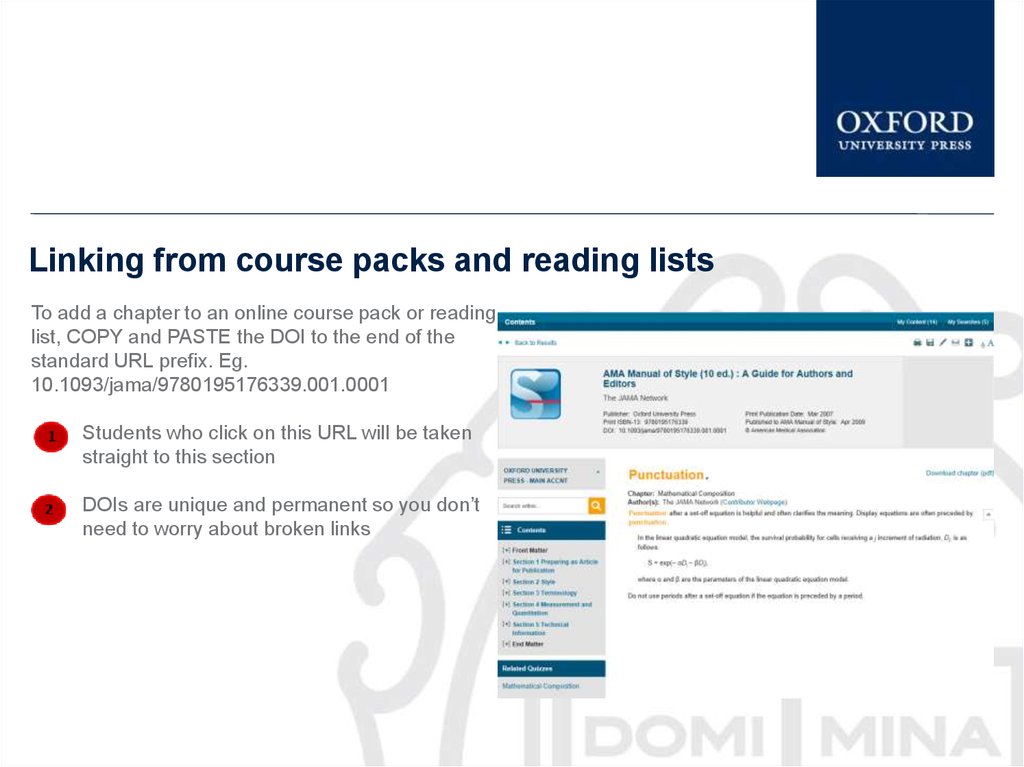
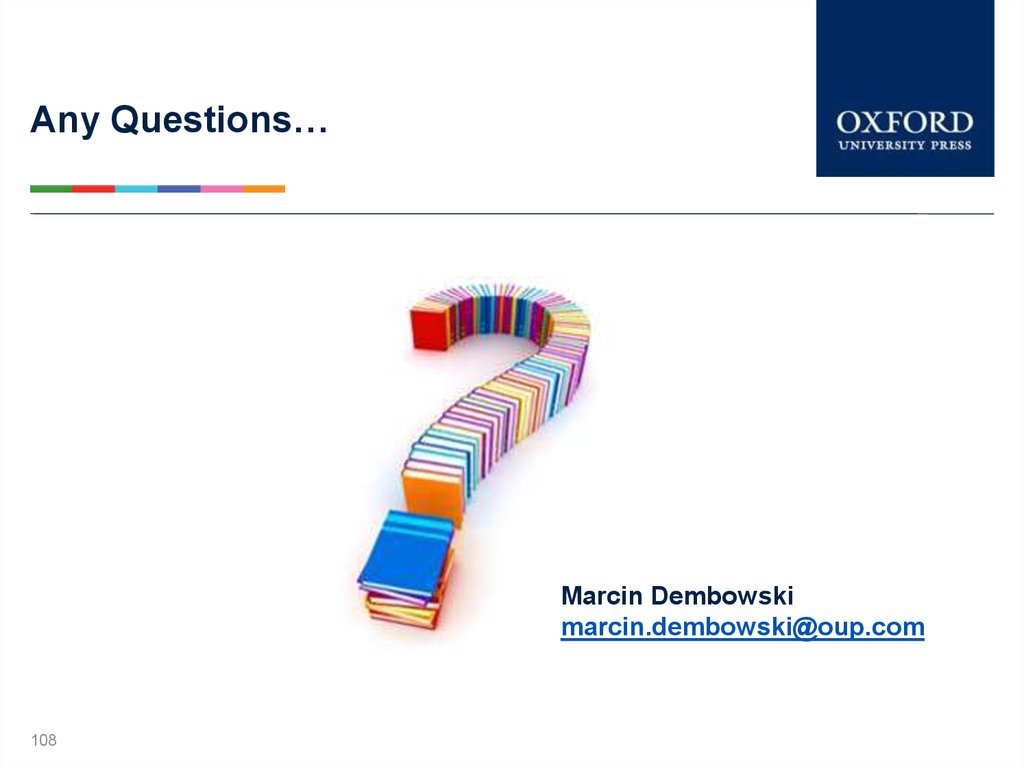
 education
education








